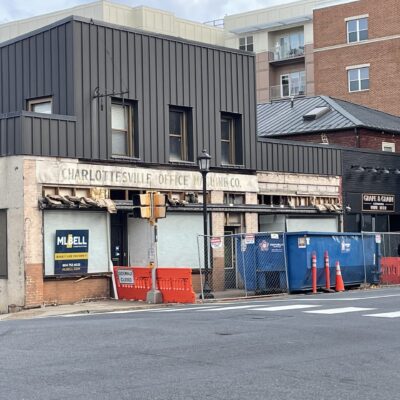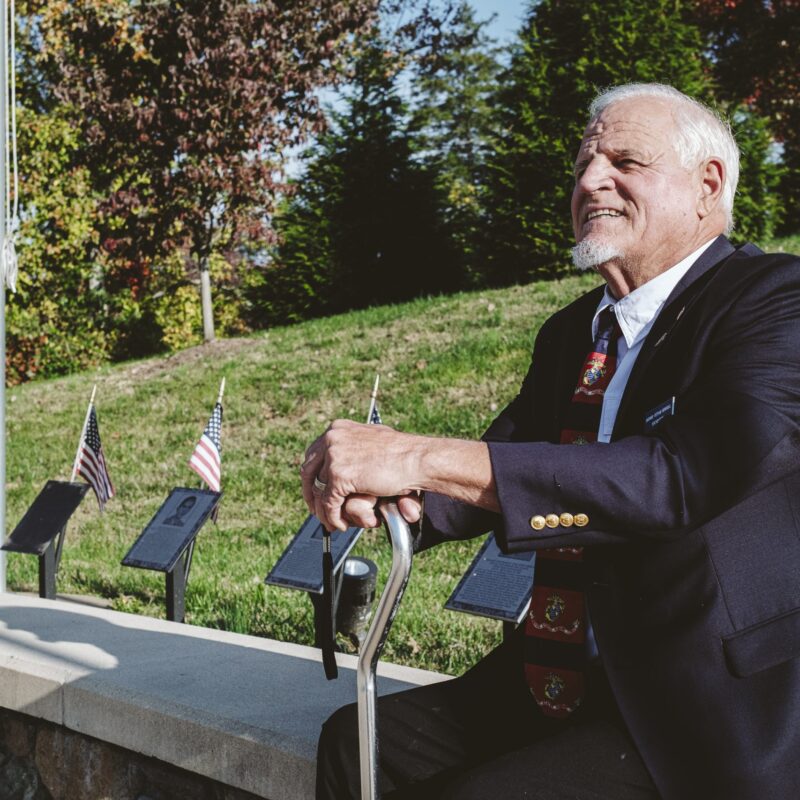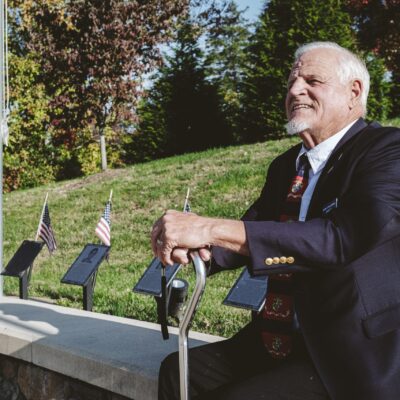Richard Bean and Jean Rinaldi were originally scheduled to appear in Charlottesville General District Court at 1pm for their December 27 preliminary hearing on charges of selling uninspected meat at the Charlottesville City Market. Local entrepreneur and activist Jody Joy sat on a wooden court bench, waiting for not only the judge to enter the room but also the Double H farmers who, unbeknownst to her, had already waived their right to a hearing that morning. "We need to show our support for our local farmers because we may have to rely on them in the near future," Joy said. "Not just support," she elaborated, "but work to strengthen their current efforts and cement the alignment of their interests with ours."
 Double H farmer Richard Bean (right), with his partner Jean Rinaldi, will have to appear in Charlottesvile Circuit Court because of a felony charge that he intended to defraud customers that his pork was organic. |
| Previous Double H coverage:
Double H Farmers Plead guilty All you can’t eat Nelson County for Double H Double H farmers busted for selling pork Previous local food coverage: Food fights The $5 tomato |
Bean and Rinaldi were arrested on their Wingina farm in September by state and local police and ultimately charged with 11 misdemeanors each for selling uninspected pork that Bean—a lifelong butcher—had raised and killed himself. A felony charge of selling uninspected meat with intent to defraud was added for Bean in Charlottesville.
The farmers were last in court for four misdemeanors in Nelson County. They pleaded guilty to only one misdemeanor, a suspended fine, and a year of probation with a number of conditions. On December 12 in that county’s General District Court, Judge Joseph Serkes actually encouraged the farmers in their efforts to change the law that had brought them into his courtroom. "He wished us luck in modifying the regulations," Rinaldi says. "It was like a weight taken off our shoulders."
In Charlottesville, Deputy Commonwealth’s Attorney Claude V. Worrell has required that their matter be resolved in Circuit Court, a mandate he says is common when a felony is involved, as it is with Bean. "We intend to honor and respect the Commonwealth’s approach," confirms Bean’s attorney Steve Rosenfield. As part of their Nelson County plea, the farmers agreed to act within the boundaries of state law.
To that end, they have already begun to outfit their own premises with the necessary measures, installing washable walls as well as printing up new cards and invoices with the words "Certified Organic" removed. Local farmers are also helping craft legislation for the upcoming General Assembly, such as a bill that would allow on-farm sales of processed hogs. Bean and Rinaldi’s circuit court appearance is scheduled for February 19.
C-VILLE welcomes news tips from readers. Send them to news@c-ville.com.





